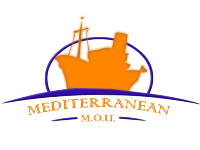Main Promo Images
01.JPG
http://columbusamericanregister.com/american-register/images/1ST-PAGE/01.JPG
02.jpg
http://columbusamericanregister.com/american-register/images/1ST-PAGE/02.jpg
03.jpg
http://columbusamericanregister.com/american-register/images/1ST-PAGE/03.jpg
04.jpg
http://columbusamericanregister.com/american-register/images/1ST-PAGE/04.jpg
05.jpg
http://columbusamericanregister.com/american-register/images/1ST-PAGE/05.jpg
06.jpg
http://columbusamericanregister.com/american-register/images/1ST-PAGE/06.jpg
07.jpg
http://columbusamericanregister.com/american-register/images/1ST-PAGE/07.jpg
08.jpg
http://columbusamericanregister.com/american-register/images/1ST-PAGE/08.jpg
09.jpg
http://columbusamericanregister.com/american-register/images/1ST-PAGE/09.jpg
10.jpg
http://columbusamericanregister.com/american-register/images/1ST-PAGE/10.jpg
The International Ship and Port Facility Security (ISPS) Code is an amendment to the Safety of Life at Sea (SOLAS) Convention (1974/1988) on minimum security arrangements for ships, ports and government agencies. Having come into force in 2004, it prescribes responsibilities to governments, shipping companies, shipboard personnel, and port/facility personnel to "detect security threats and take preventative measures against security incidents affecting ships or port facilities used in international trade."
The ISPS Code is implemented through chapter XI-2 Special measures to enhance maritime security in the International Convention for the Safety of Life at Sea (SOLAS).
The ISPS Code applies to ships on international voyages (including passenger ships, cargo ships of 500 GT and upwards, and mobile offshore drilling units) and the port facilities serving such ships.
The main objectives of the ISPS Code are:
- To detect security threats and implement security measures
- To establish roles and responsibilities concerning maritime security for governments, local administrations, ship and port industries at the national and international level
- To collate and promulgate security-related information
- To provide a methodology for security assessments so as to have in place plans and procedures to react to changing security levels
Requirements
The Code does not specify specific measures that each port and ship must take to ensure the safety of the facility against terrorism because of the many different types and sizes of these facilities. Instead it outlines "a standardized, consistent framework for evaluating risk, enabling governments to offset changes in threat with changes in vulnerability for ships and port facilities."
For ships the framework includes requirements for:
- Ship security plans
- Ship security officers
- Company security officers
- Certain onboard equipment
For port facilities, the requirements include:
- Port facility security plans
- Port facility security officers
- Certain security equipment
In addition the requirements for ships and for port facilities include:
- Monitoring and controlling access
- Monitoring the activities of people and cargo
- Ensuring security communications are readily available
Columbus American Register provides ISPS consultancy, ship security plan preparation and certification for all type of vessels.










